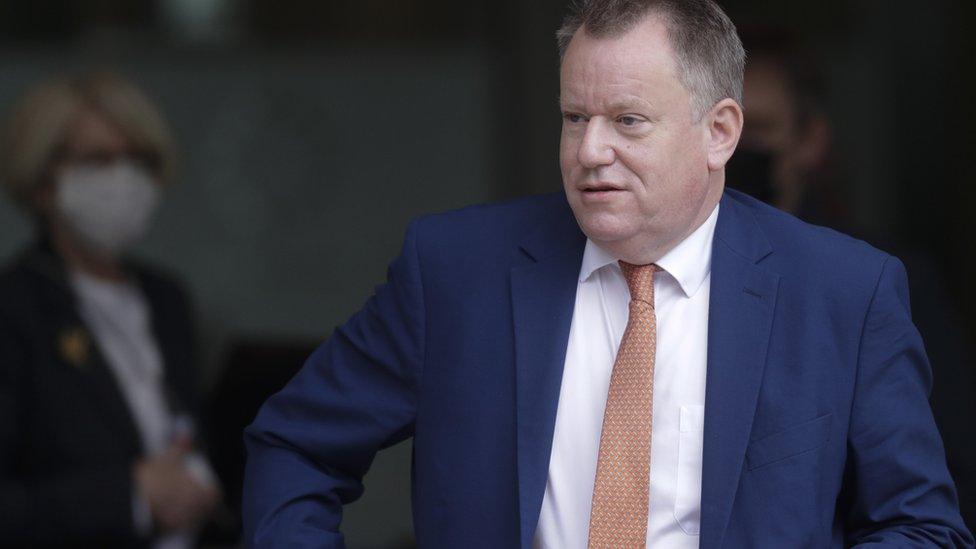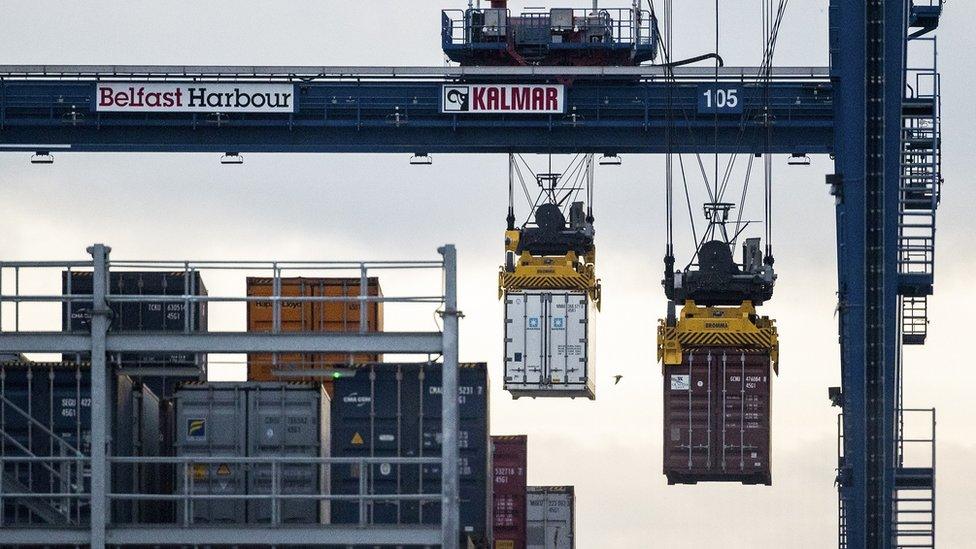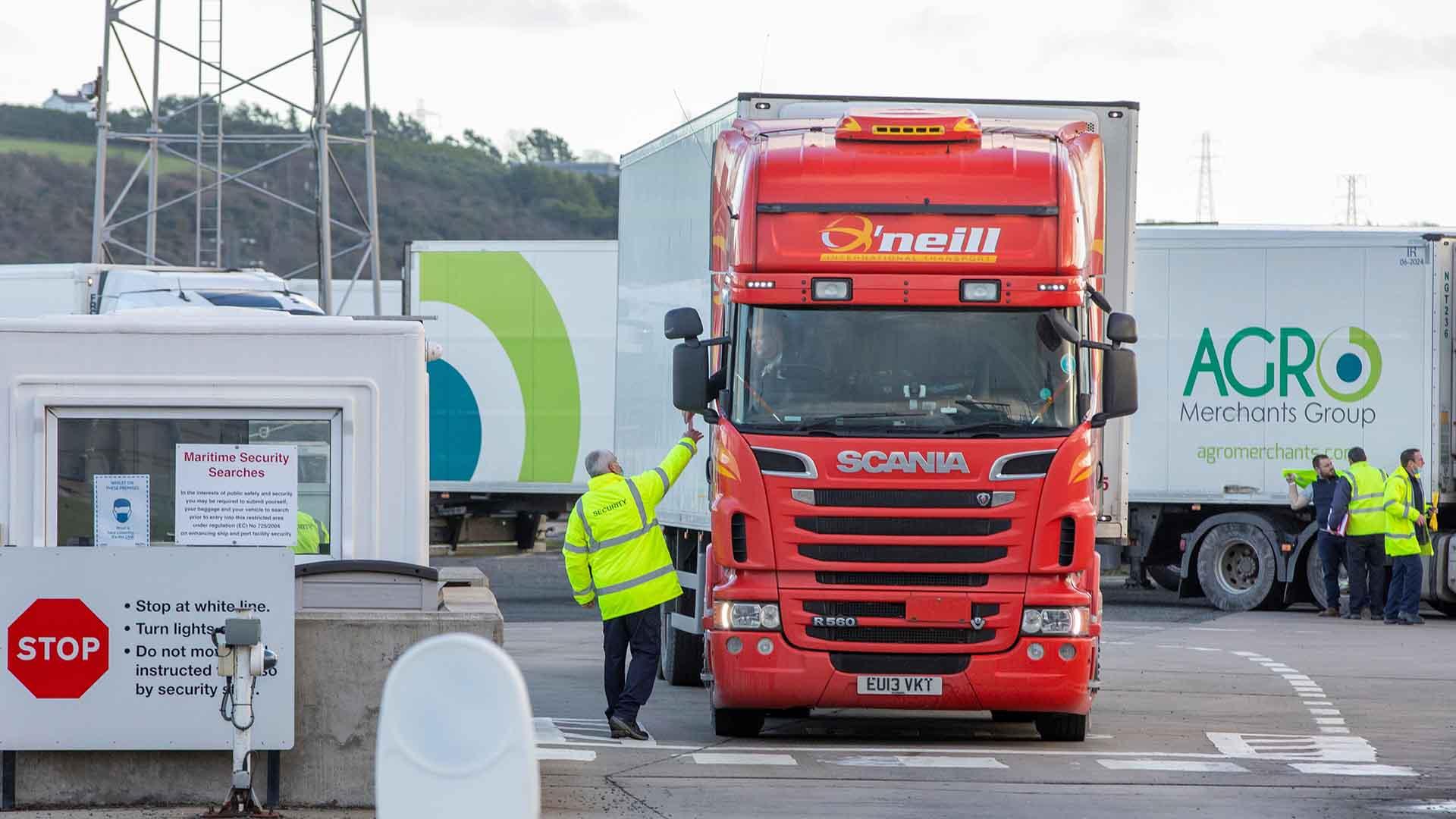Brexit: EU-UK NI Protocol talks make progress but 'gaps remain'
- Published

Lord Frost said it was possible to generate momentum after meeting Maroš Šefčovič on Friday
There has been progress in talks between the EU and UK but "significant gaps remain", Lord Frost has said.
The UK Brexit minister made the comments after meeting European Commission Vice-President Maroš Šefčovič.
Lord Frost said there was the potential to "generate some momentum" in the talks, which will continue next week.
The men were discussing the operation of the Northern Ireland Protocol.
The protocol is the deal between the EU and UK which was agreed as a way to avoid a hardening of the Irish land border.
It leaves Northern Ireland in the EU's single market for goods, meaning goods can flow freely with the Republic of Ireland.
However, goods arriving into Northern Ireland from the rest of the UK are now subject to checks and control - amounting to a so-called Irish Sea border.
The EU has acknowledged its is causing difficulties to some businesses and needs to be improved.
'Real test of good will'
However the UK is seeking more fundamental changes, including removing the European Court of Justice from an oversight role.
Technical talks ahead of Friday's meeting had focused on guaranteeing the supply of medicines from Great Britain to Northern Ireland.
Mr Šefčovič said there had been progress in this area, adding: "We now need to press on and get this crucial issue across the line.
"This is a real test of political goodwill."
He said that on the issue of customs there had been "initial useful engagement at a technical level".

Goods arriving in Belfast from GB are subject to checks and controls
Lord Frost said that with medicines, any solution needed to ensure that products were available at the same time and on the same basis across the whole of the UK.
He added that there had not been "substantive progress on the fundamental customs and SPS (agrifood) issues relating to goods moving from Great Britain to Northern Ireland".
The two men are due to meet again in London next Friday.
Earlier, UK cabinet minister Michael Gove said he was confident of making progress on issues over the Northern Ireland Protocol without triggering Article 16.
Article 16 of the protocol allows unilateral "safeguard" measures to be taken if either the EU or UK concluded that the deal was leading to serious practical problems or causing diversion of trade.
That would amount to a suspension of parts of the deal.
On Thursday, the Lord Frost reiterated that triggering Article 16 remained an option for the UK.
The EU believes the use of Article 16 is unjustified and would be used by the UK as pretext to repudiate the protocol.
Mr Gove said the protocol had meant disruption to trade and inconvenience for people in Northern Ireland.
But he praised a constructive approach from the European Commission.
Speaking at the British-Irish Council summit in Cardiff, Mr Gove said Lord Frost had "signalled that while of course it is always possible Article 16 may require to be invoked - we are confident we will be able to make progress without it".
What's the Irish PM's message to the UK?
Late on Thursday night, Taoiseach (Irish Prime Minister) Micheál Martin said there was "serious intent" in the EU to solve the disagreement on Northern Ireland.
He said the mood music surrounding EU-UK negotiations had improved in recent weeks but he admitted feeling frustrated that the issue had hindered the "full flowering" of the two sides' alliance.
Related topics
- Published2 February 2024

- Published17 May 2022
